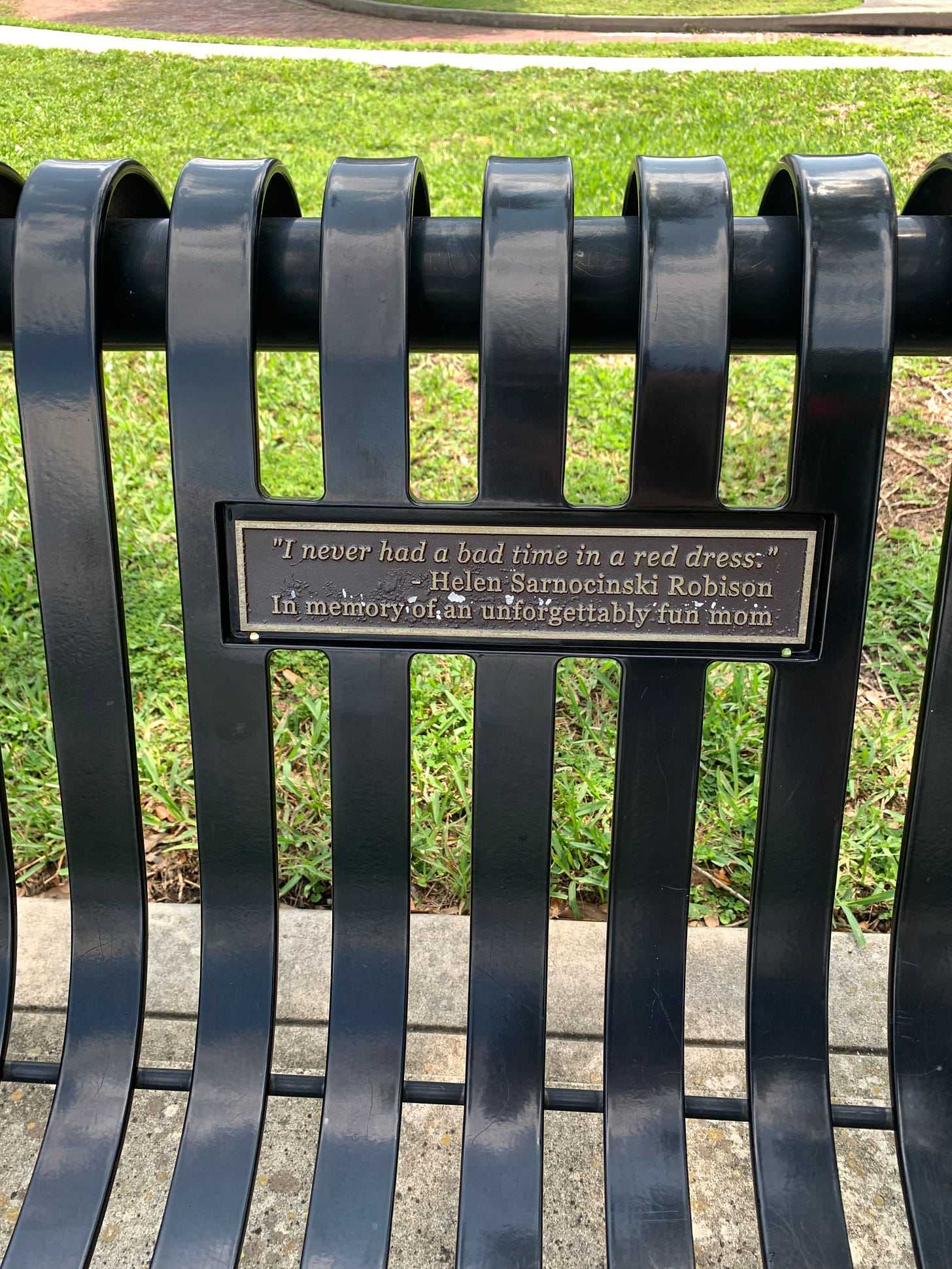#16: Acts, Eras, Chapters
Career retrospectives aren't revolutionary, so why is it significant that young pop stars are already reflecting on their legacies?
Hello! I touched the threshold of galaxy brain last week thinking about pop stars. You’ll be delighted to know that I haven’t stopped thinking about them since. Perhaps it’s the Sagittarius in me.
Every couple of years I revisit Jane Fonda in Five Acts (2018), the documentary about Jane Fonda’s multifaceted career. I find the chronicling of Fonda’s life equal parts comforting and—without sounding too guileless—aspirational. Comforting, because here’s a woman who has followed her gut, fucked up, found out, fought back, and reinvented herself more times than I can count. I sometimes fear that sending an email will spur my demise, so this type of defiance without dire consequence calms me. As for aspirational, I’ve long pocketed a desire to live many, many versions of life. No doubt informed by early viewings of Auntie Mame.1 Fonda, 85, has been an ingenue, an activist, a fitness guru, a cowgirl. An icon to fig branch-gazing idealists everywhere. How could I not admire her?
Her legacy in Hollywood and dedication to activism gives young stars a blueprint for navigating the circus of celebrity and leveraging the outsized influence that comes with it. One performer who draws comparisons is singer and actress Miley Cyrus. Both Fonda and Cyrus followed in their famous fathers’ footsteps eventually surpassing their stardom. They’re outspoken about social and environmental causes. They’re also no strangers to controversy and disfavor in the court of public opinion.
To mark the debut of her new single, “Used to Be Young,” Cyrus took a page from Fonda’s playbook last week. She released a retrospective of her 30 years in the performing arts, noting the highs, lows, and whoas of a life in the spotlight.2 My biggest takeaway from the interview series was that unlike many of her adolescent peers Cyrus fully embodied the virtues and aesthetics she propped up each era. Her music, her messaging, her fashion didn’t pander to consumers. It was more self-assured than that—this woman was evolving, messily cycling through identities (and mis-stepping into cultural appropriation more than once). But you get the sense that Cyrus, for all her misjudgment, is fueled by enthusiasm for other people’s artistic expression and building a mental archive of visual and auditory references.
Cyrus’s evolution got me thinking about something Taylor Swift said in her own documentary. She highlights the double standard female artists are held to, the pressure to constantly reinvent themselves to maintain the market’s attention. “Be new to us, be young to us—but only in a new way and only the way we want,” she mimics critics. “Live out a narrative that we find interesting enough to entertain us, but not so crazy that it makes us uncomfortable.” As Swift downshifts from her own epic epochal endeavor (a career-spanning concert tour organized by album or “era”), I ask without bite or criticism: How many of her eras were exercises in identity-forming and how many were brand refreshes?
—
If past newsletters haven’t made it clear yet, I’m fascinated by how we build identities in public and in private, online and off. We hold a special spot in our hearts for retrospectives, timelines, and narratives that tidily connect the dots of winding lives. Cyrus and Swift’s prowess as storytellers in song has translated to powerful myth-making in their professional lives. Though they are far from the first musical acts to wax nostalgic about their careers, the relatively early timing of such reflections for Cyrus, 30, and Swift, 33 is note-worthy.
(Here I want to express that this letter is consciously narrow in scope. Were I to write about reinvention and reimagination in pop music full stop, I’d focus on Prince, David Bowie, Madonna, The Beatles, Elton John, Beyonce, Lady Gaga et al. I find Cyrus and Swift’s premature (??) interest in their legacies and need to publicly demarcate their artistic chapters interesting and worth unpacking.)
I experience the same comfort tracing the trajectory of Cyrus and Swift’s careers as I do Fonda’s. Swift, in particular, was my first contemporary example of a woman tactfully rebuffing the good girl belief system that accelerated her success. She shed her previous skin without the assistance of drugs, alcohol, or unlawful behavior, a sort of radical act in the entertainment industry. It’s not by accident that Swift fans often proclaim to be “in their Reputation era,” co-opting her vernacular for rejecting societal expectations. Swift gave her listeners the language to express the cognitive dissonance of shifting between identities and beliefs. And the validation to do so.
Whereas success in Hollywood hinges on reinvention, adjusting identity is not so easy in the real world, particularly for women. Changing self-perception is one battle, changing public perception another. And almost all uphill battles when you factor in the sticky “roles” women are categorized by: mother, girlfriend, caregiver, Madonna, whore, old maid.
For me, female artists’ and audiences’ preoccupation with acts, eras, and chapters holds more weight given this context. I don’t read it as a gimmick. The diverse visual styles and attitudes are fun, of course, but what they communicate is far richer: Women can change their minds about who they are and be confused during their explorations of identity. We can make mistakes and not suffer for eternity because of them. Experimentation doesn’t end at 25 and physical changes don’t need to be the only catalyst for mental and emotional transformation.
So perhaps for Cyrus and Swift, documenting and celebrating this evolution isn’t entirely about fan service and selling records. It’s an endorsement for eventually looking back at 85 and thinking, I tried everything and I know who I am because of that.
Sidewalk Reporting
A great park bench spotted on my walk a few nights ago. Cheers to Helen. Also, this has been on repeat (Kacey 4Ever):
Thank you for reading!
I realize this is the second time I’ve referenced Mame in the newsletter’s lifespan. A foundational text in my life, really
She posits that she’s been entertaining audiences since birth, so her entire life is fair game. Brb adjusting my resume to state that I have 30 Years of Lived Experience






